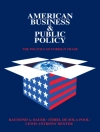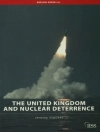This book offers a highly original analysis of world events in the light of the Iraq War. It explores the history and development of relations between major countries in the international community and the impact that successive wars and changes in the global political economy have had on the way states relate to each other today.
Tracing the liberal state structure back to the closing stages of the English Civil War and settlement in North America, it argues that the rise of the English-speaking West has created rivalries between contender states that are never entirely put to rest. With each round of Western expansion, new rivalries are created.
Offering a truly global analysis that covers every area of the world — from Europe and America to China, the Middle East, Latin America and Russia — he analyses the development of international relations post WWII, and questions whether the neoliberal project and its human rights ideology have collapsed back into authoritarianism under the guise of the ‘war on terror’.
Содержание
1. Fractures and Faultlines in the Global Political Economy
2. Integrating Atlantic Europe
3. America’s Crusade in Asia and the Euro-Atlantic Rift
4. The Spectre of Social and Economic Democracy
5. Transnational Rivalries and the Neoliberal Turn
6. From Pinochet to the Reagan Doctrine
7. The Rapallo Syndrome and the Demise of the Soviet Union
8. America over Europe in the Balkans Crisis
9. The Rise of China as the New Contender
10. Energy Conflicts in the Post-Soviet Era
11. From Human Rights to the Global State of Emergency
References
Index
Об авторе
Kees van der Pijl is a Fellow of the Centre for Global Political Economy and Professor Emeritus at the University of Sussex. His books include The Disciple of Western Supremacy (Pluto, 2014) The Foreign Encounter in Myth and Religion (Pluto, 2010), the Deutscher prize-winning Nomads, Empires, States (Pluto, 2007).












